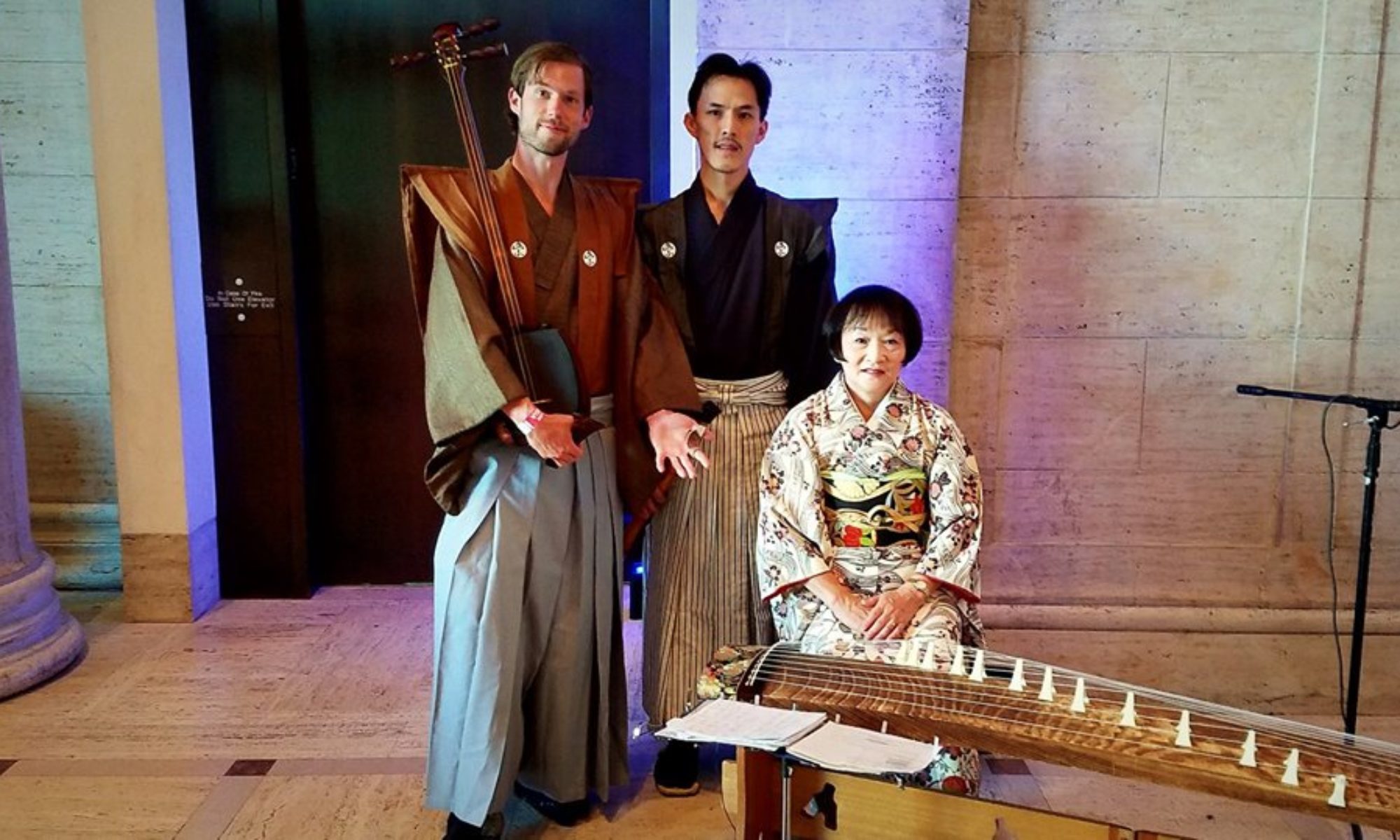Special Guest Commentator:
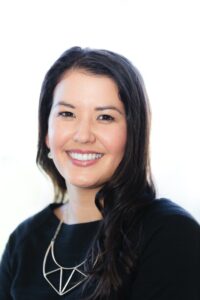
Lauren Kawana
Born and raised in Hawaii, Lauren Kawana currently works in the San Francisco Bay Area as an independent documentary film producer, camera operator and editor. Her most recent project–Mind/Game: The Unquiet Journey of Chamique Holdsclaw directed by Rick Goldsmith–tells the story of a former women’s professional basketball player as she learns to cope with mental illness.
Lauren received her master’s degree in documentary film at the UC Berkeley Graduate School of Journalism. Before moving to California, she served as managing editor for Element Media, a Honolulu-based publishing firm which produces Pacific Edge and Las Vegas Bound magazines. Lauren also had the privilege to work on the award-winning film Ahead of the Majority: The Life and Times of Patsy Mink, a documentary written, directed and produced by Kimberlee Bassford of Making Waves Films.
Lauren is passionate about diversity in media. She currently serves as President of the board of the San Francisco Bay Area chapter of the Asian American Journalists Association.
Concert Series Special Guests:
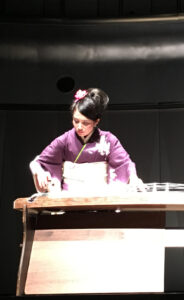 Nao Yamashita
Nao Yamashita
She first encountered the koto while attending the Hyogo International High School, where she began studying under Kaori Takada, a koto musician and music teacher.
In high school, she went to All Japan Koto Competition for high school students every year.
She got a prize in folk music section in OSAKA International Music competition in 2017.
She was selected the finalist in All Japan Hogaku Competition which is a Japanese music competition divided into the five categories of koto, shakuhachi and fue, shamisen, biwa, and ensemble with koto, shamisen, and shakuhachi in 2018.
She was also selected the finalist in All Japan Koto Competition in 2018. She is currently under the tutelage of Takada Kaori, an instructor at Sawai Koto Institute, and is also a instructor at Sawai Koto Institute.
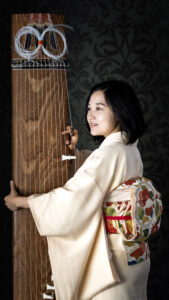 Isako Kajun Kashino
Isako Kajun Kashino
Born and raised in Fukuyama city, a preeminent Koto production city, in Hiroshima-ken, Japan, Isako “Kajun” Kashino has been always surrounded by Koto music. She started learning Koto at age 6 and Shamisen when she was 9 years old from her teacher Kasumi Taruma, Tobiume-tsukasa Daishihan (highest honor in the school) of Chikushi Kai Koto Academy.
Isako’s passion has always been with playing and teaching Koto & Shamisen while collaborating with other musical instruments to expand her horizons. While she was a student at the International Christian University in Tokyo, she transcribed some classical music pieces for Koto for those who just started learning at the Koto club. After completing her graduate education from University of Southern California, Isako is now based in Sacramento where she continues to perform and teach Japanese musical instruments.
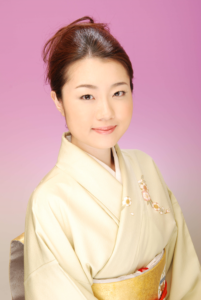
Bandō Naō (坂東奈央) Bandō Naō is the eldest daughter of the late kabuki actor and headmaster of the Bandō School of Japanese classical dance (坂東流日本舞踊), Bandō Mitsugorō X, and is the eldest sister of the kabuki actor and current headmaster Bandō Minosuke.
Naō began her training in Japanese classical dance at the of three. The same year she debuted on stage performing Otsuki-sama (“Mr. Moon”). Throughout Naō’s early years, she appeared performing alongside with her grandfather, Bandō Mitsugorō IX. For instance, in September of
1991, in commemoration of the 17th anniversary memorial service of Bandō Mitsugorō VIII, Naō performed with her grandfather, appearing in an iconic Bandō repertory dance-drama Kairaishi (“The Puppeteer”) in a month long kabuki production at the Kabuki-za Theater (Tokyo, Japan).
At the age of eighteen, Naō achieved her natori degree (equivalent to a Master’s degree in the United States).
Naō’s dream of introducing Japanese classical dance to the world began during her time as a student at the Tamagawa University. During her university years, in 2005, Naō traveled to the United States and participated in the Philadelphia Cherry Blossom Festival. During this visit, she also held two separate performances, one more in Philadelphia and the second in Washington D.C. In 2006, Naō performed in the first Bandō School’s Charity Show-Los Angeles, performing along with some of the Bandō School’s top instructors and her father. In 2013, Naō achieved her shihan (equivalent to a PhD degree in the United States). Continuing to pursue her dreams of
introducing Japanese culture and dance outside of Japan, Naō completed a three-month English Language Program in Portland, Oregon in 2015. In 2017, Naō passed her examinations to become a certified Japanese language instructor. Currently, Naō resides in Tokyo, Japan where she continues to introduce the Japanese culture and instructs Japanese language to foreigners.
Special Guests for “Niji” Online Obon:
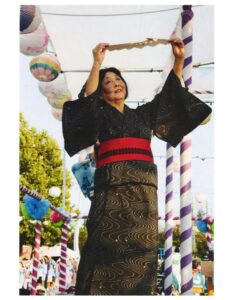 Reiko Iwanaga aka Hanayagi Reimichi
Reiko Iwanaga aka Hanayagi Reimichi
Reiko Iwanaga aka Hanayagi Reimichi has been dancing since she was about 3 or 4 years old. In fact, Reiko’s mother had taken Japanese dance lessons as a young person, and she also had a flair for performance so she would choreograph Hawaiian, Japanese, comical numbers so that temple members and young people could perform at various temple events. Dance was already in Reiko’s DNA, and something that would always be a part of her life!
In 1942, the racial hysteria of the times saw much hatred towards Japanese and Japanese Americans. Reiko’s family was sent to Amache/Granada relocation center in Colorado. There, in these chalky uplands, Reiko’s family were forced to live in horrible conditions and extreme climate. They were in the middle of nowhere, yet they resolved to be productive, and created work and activities to keep themselves active and occupied.
As fate would have it, adversity became opportunity when Reiko’s mother saw a chance for her 4-year-old daughter to learn classical buyo dancing from neighbor Bando Miharu, a talented buyo teacher from the L.A. area. Reiko would walk a few blocks to her teacher’s for lessons all by herself. About a year later when Bando Miharu was transferred out of Amache camp to Heart Mountain camp, Reiko continued to take dance lessons from Yukino Okubo Harada, a talented student of Fujima Kansuma, both of whom were from L.A.
Reiko said that although she was a child, children were taught as the adults were. They were all taught the etiquette of buyo dance: how to bow to the teacher at the beginning and end of class, how to sit still and obey the teacher w/o question, which also fostered respect and discipline. Learning dance taught Reiko poise and grace, and memorizing all the movements were good lessons for the soul. All the costumes were correct. Each dance told a story. After camp, and some years later, Reiko continued to take buyo dance lessons for three years in Japan. In the states, she learned for several years from Hanayagi Jumai (who also taught dance at Tule Lake) and Hanayagi Michiya. She achieved her natori in 1965, earning the professional name of “Hanayagi Reimichi”. She has been the head teacher and choreographer of the San Jose Buddhist Church Betsuin Obon Odori for over 20 years, while dancing on the teachers’ yagura since her high school years six decades ago.
The first time I saw Reiko Iwanaga, she was at the top of the “yagura” teachers’ platform leading the Obon Odori in San Jose. She was sure in her movements, easy to follow, and she exuded happiness as she danced. I noticed she even smiled while she danced, which is something you don’t often see many classically trained Japanese artists do! It shows how much she enjoys dancing. She choreographs dances with an eye for how it will look with a large group dancing, and also designs movements that are easy to catch on. Although Bon Odori is based on Buddhist tradition, she also includes secular numbers, like “Pokemon Ondo”, which is one of the favorites at San Jose Obon.
Our working together has included her graciously agreeing to be interviewed for the Hidden Legacy film. Reiko was able to give us a perspective of how it was like for a young girl in camp to learn dance, and that her mother’s influence got her involved. I also worked with Reiko in planning the premiere of Hidden Legacy in San Jose, as she planned the event in her role as Executive Director of CATS (Contemporary Asian Theater Scene, which presents Asian American arts in the Silicon Valley), and we appeared together on the premiere show of Robert Handa’s “Asian Pacific America” on NBC. Recently, she even helped us with a grant proposal. I have found Reiko to be very conscientious about Japanese cultural arts and the community, and respectful to those who came before us, which is what Bon Odori is all about!
Reiko Sensei is welcoming of everyone to join in the Bon dance. Although Bon Odori has its roots in religion, not all who dance are Buddhist, nor are they all Japanese. At the time I interviewed Reiko Iwanaga for Hidden Legacy a few years ago, she noted that her grandson had just had his bar mitzfa, and that he also dances the Obon dance, which she said she felt was a nice mix of cultures!
Americans who practice cultural arts bring a diverse creative view, because we are exposed to the varied background cultures of other Americans. These various cultures influences and changes cultural arts to some extent, which is good because art should reflect the people, and these changes can help the art to be more relevant and continue into the future.
Coincidentally, Reiko’s father-in-law was Rev. Yoshio Iwanaga, the one who brought Bon Odori to the mainland U.S. over 80 years ago. He spread the tradition and community participation all over California. In the 1930s, Rev. Iwanaga even put together Obon dance for the Pan Pacific Exposition in SF, where over 1,000 dancers performed on Japan American Day. Now, Reiko Iwanaga leads more than 2,000 dancers at San Jose’s Obon Festival two-day festival, and led hundreds more during the “American Bon” event in September 2019, carrying on this legacy.
Reiko says, “”Obon Odori is the Dance of Gratitude and Joy”, and if you have ever seen her dancing, you will know what that means to her. She conveys this joy and gratitude to everyone, and her infectious spirit makes everyone want to dance! Because of her beauty and grace in dance and her desire for this to continue with diversity, Reiko Iwanaga is, I feel, one of the greatest ambassadors for Bon Odori in the world! I’m certain the San Jose Obon Festival will continue to grow because of her dedication, her deep passion for the dance, her grace and her smile.
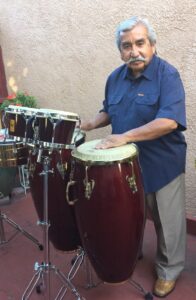 Joseph (Joe) Guzman
Joseph (Joe) Guzman
Born and raised in Oakland, California, he is currently retired from his day job, and is semi-retired from band performances. Joe keeps up his skill playing along to recordings and occasionally playing at birthday parties and family gatherings along with his brothers Philip, Felix, Jaime, and his nephew Jaime Jr.
Joe began taking piano lessons from an accomplished pianist named Mrs. Messa at the age of eight. He began taking trumpet lessons in junior high school with John Silva and private lessons with Joseph Alessi. Joe played the trumpet when he was a student at Castlemont High School. He performed in both Orchestra and Jazz Band.
As a young man, Joe and his brothers formed a band with their music teacher John Silva called the Pan Americans (made up of talented high school musicians) which played in huge dance halls and occasionally places like the Claremont Hotel. They performed Big Band standards and Latin selections while they were under the direction of John for 2.5 years.
In his late twenties, Joe became very interested in percussion. He taught himself how to play the timbales, congas, and other percussion instruments. He chose to stay with percussion, and he and his brothers formed another band called the Guzman Brothers. They performed for years all over the Bay Area and were requested for engagements at Luxury Hotels in San Francisco and Oakland, such as the Fairmont Hotel, Mark Hopkins Hotel, and Jack Tar.
Later his younger brother Jaime formed a Cumbia band called Sonora Sol and Joe would play percussion alongside his nephew, Jaime Jr., before deciding to semi-retire his musical career. His latest musical project has been performing as lead percussionist on congas for “Niji”, which was recorded for the NextGen JCA Online Obon.
In his retirement, he now enjoys creating memories with his loving wife, Monica, and their friends and family.
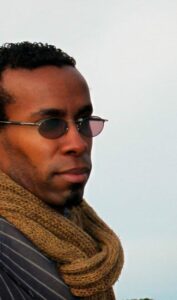 Thomas DeVar Yarbrough
Thomas DeVar Yarbrough
Thomas grew up being classically trained in piano under the instruction of his mother Naomi. He started playing drums in middle school and is known among his friends and family for his operatic voice. While living and studying in Greece he toured within Greece as part of a Latin dance group called Alma Latina. Currently, he is a certified FAA UAV/UAS drone pilot with over 10,000 logged flight hours and has worked with tech companies such as GoPro, Skycatch, and Airspace Systems, Inc managing their drone departments. Most recently he played taiko as an assistant percussionist alongside his daughter Lily Belle for the recording of “Niji” produced for the NextGen JCA Obon performance. His personal quote for success is as follows: “I love to break free of the familiar and venture into the unknown, its within the unknown that I have learned what I am really made of.”
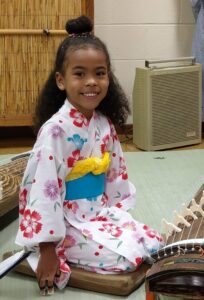 Lily Belle Aiko Takashima Yarbrough
Lily Belle Aiko Takashima Yarbrough
Lily Belle is a Gosei with ancestral ties to Japanese, Honduran, European and African lineages. She started her musical training at two years old with private Japanese immersion music therapy classes. At four years old, she started vocal training through the San Francisco Girls Chorus and has just been promoted through audition to their Training Chorus. Lily Belle also began instruction in Suzuki violin when she turned four and is currently under the instruction of Dorothy Lee, former president of the Northern California Suzuki Association. At five years of age, she began Japanese koto, and has been studying under Master koto musician Shirley Muramoto Sensei who earned a “Shihan” teaching credential with “Yushusho” honors and a “Dai Shihan” Master’s degree from the Chikushi School in Fukuoka, Japan. Lily Belle was an assistant percussionist alongside her father for the recording of “Niji” featured on the NextGen JCA Online Obon performance led by Reiko Iwanaga and has experience performing in groups at Davies Symphony Hall, local churches, schools, Obon festivals and Bazaars.
